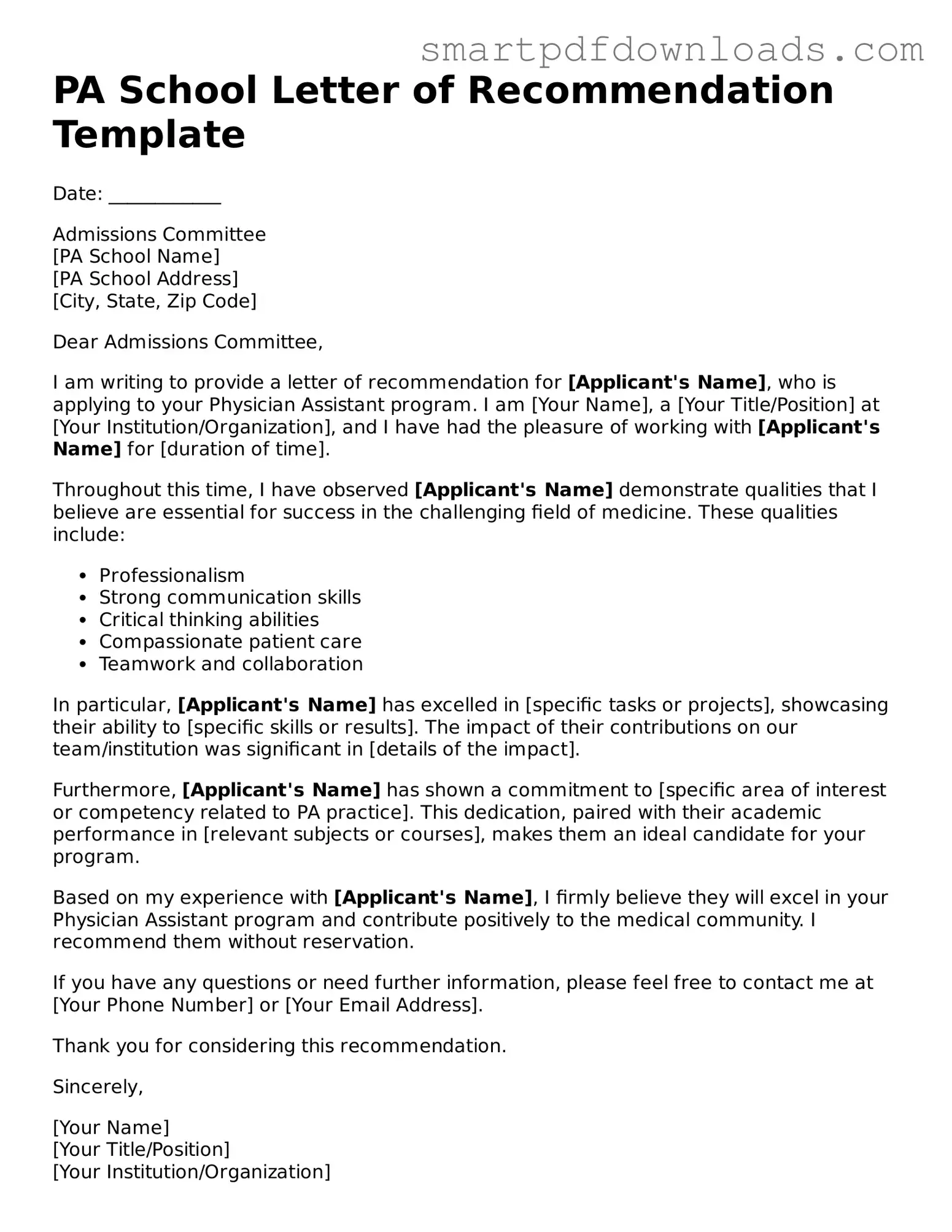Free PA School Letter of Recommendation Form
The PA School Letter of Recommendation form is a crucial document that prospective physician assistant students submit as part of their application process. This form allows individuals to provide insights into the applicant's qualifications, character, and readiness for the rigors of PA school. A well-crafted letter can significantly enhance an applicant's chances of admission.
Edit PA School Letter of Recommendation Online

Free PA School Letter of Recommendation Form
Edit PA School Letter of Recommendation Online

Edit PA School Letter of Recommendation Online
or
⇓ PDF File
Finish the form and move on
Edit PA School Letter of Recommendation online fast, without printing.